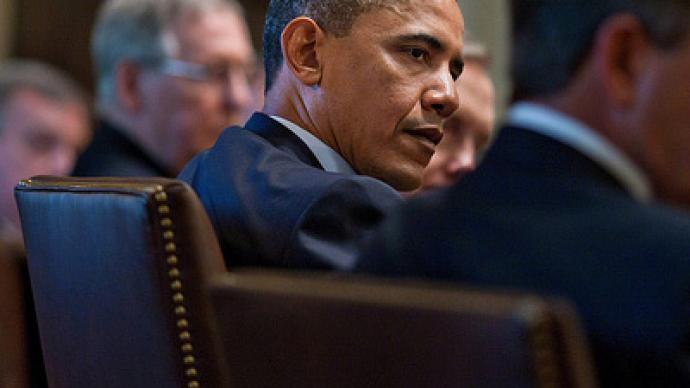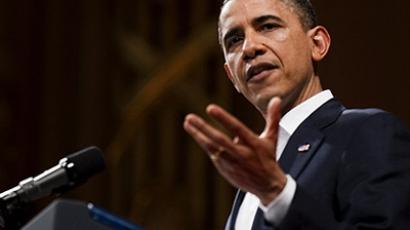Congress slams Obama on Libya

Congress has officially called President Barack Obama’s bluff, demanding that the commander in chief disclose details regarding the US’ role in Libya within the next two weeks.
In a resolution adopted Friday afternoon by a vote of 268-145, the House has scolded Obama for his dispatching of the US military three months ago without any congressional approval. Now the President must release details on the scope of the mission, as well as the cost of the operation, within 14 days. The resolution also bars the US from adding any ground troops on the Libya front, except in an instance where an American service member would need to be rescued. Friday’s resolution came just two days after a similar proposal from Democratic lawmaker Dennis Kucinich was shut down. In Kucinich’s plan the US would need to fully halt their military presence in Libya within 15 days. The resolution that did make it—a less harsh one proposed by Republican House Speaker John Boehner—was hastily put together to offer a more mild alternative to counter Kucinich’s game plan for Libya. Said Boehner reportedly, his resolution would send a message to the President without "pulling the rug" from under American allies in North Africa."Today's debate on Libya is the first step and clearly there's information that we want from the administration that we asked for in this resolution and it's information that we expect to get," says Boehner. "There isn't any question in my mind that Congress is going to take further action in the weeks to come,” he adds.As Congress chastises Obama failing to provide “compelling rationale” for his intervening in Libya, the White House has fired back, calling both Boehner and Kucinich’s resolutions “unnecessary and unhelpful.”Obama has so far surpassed the timeline included in the 1973 War Powers Act that would require him to receive congressional authorization within 60 days of military action. On Thursday Kucinich called out Obama, asking "Since when does NATO trump the Constitution of the United States?" Rep. Jerrold Nadler of New York similarly proposed "Shall the president, like the King of England, be a dictator on foreign policy?"














